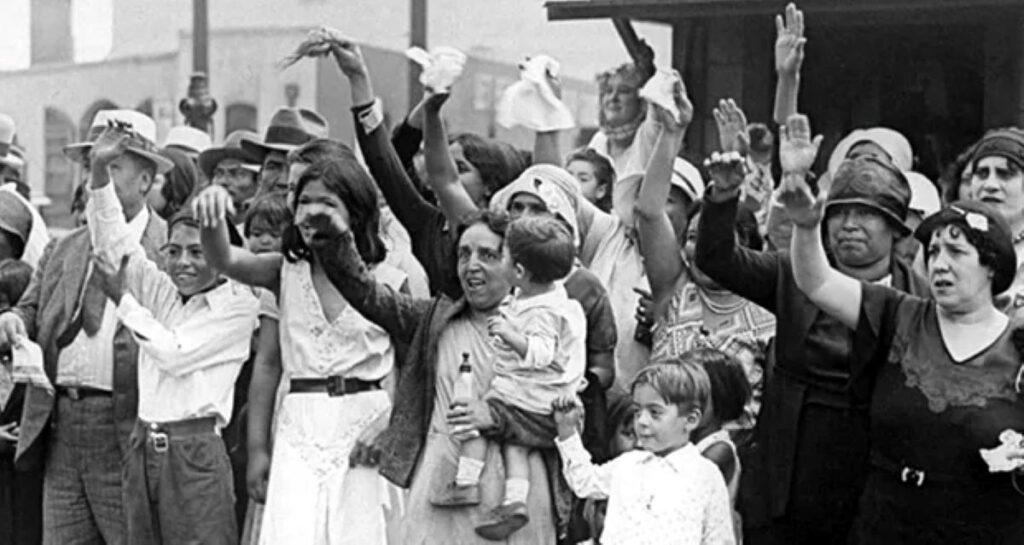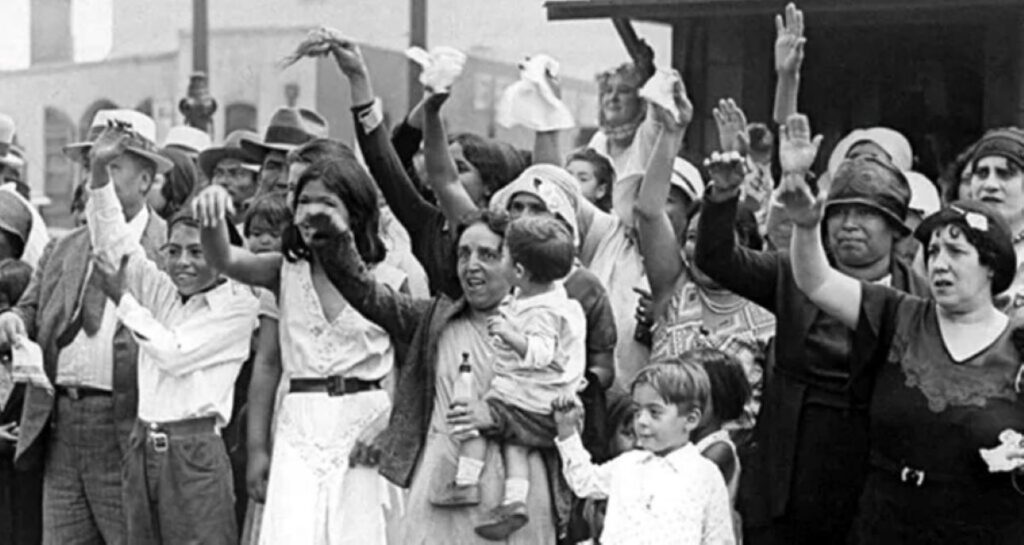
In Los Angeles on February 26, 1931, under sunny skies, a crowd gathered at La Placita Park, nestled in the heart of the city’s Mexican enclave, for an afternoon of leisure and community. However, the serenity shattered when a swarm of undercover officers armed with firearms and batons descended upon the park.
Their presence was formidable, with officers stationed at every entrance, barricading the park’s exits while flatbed trucks circled its perimeter. Former Democratic state senator Joseph Dunn recounts the chaos that ensued, revealing that individuals with darker complexions were targeted.
Approximately 400 park-goers were herded together and subjected to demands for proof of legal residency and citizenship. Those unable to furnish adequate documentation faced detention and deportation. Dunn’s research uncovers a sinister episode in American history, primarily overlooked — a tragedy that befell the Latino community during the Great Depression.
The raid, orchestrated amidst the economic turmoil of the Great Depression, coincided with President Herbert Hoover’s rallying cry for “American jobs for real Americans,” a thinly veiled call for the removal of Mexicans who were deemed non-Americans.
ALSO READ: Denver Grapples With Budget Cuts as Recreational Centers Reduce Hours Amid Migrant Crisis
Local ordinances, enacted under the guidance of Hoover’s Secretary of Labor William Doak, barred individuals of Mexican descent, including lawful residents and citizens, from government employment, with major corporations like Ford, U.S. Steel, and Southern Pacific Railroad complicit in the purge.
The pretext for the raid was to coerce individuals to return to their purported homeland, Mexico, despite many being native-born Americans. Los Angeles city officials raised concerns over the legality of the deportations, but their objections were met with dismissive retorts highlighting the racial hatred driving the deportations.
The fear instilled in Mexican communities reverberated nationwide as families were forcibly removed from parks, hospitals, markets, and social clubs, herded onto trains, and expelled across the border. Francisco Balderrama, a professor emeritus of history, elucidates how Mexicans became scapegoats for the economic downturn, subjected to systemic injustices.
POLL — Should the U.S. Government Create a Path to Citizenship for Undocumented Immigrants?
The echoes of this dark chapter reverberate in contemporary political discourse, with former President Donald Trump’s zero-tolerance immigration policies and Immigration and Customs Enforcement raids drawing parallels to Hoover’s repatriation campaign.
However, unlike Trump’s rhetoric, Hoover’s administration cloaked deportations as voluntary repatriation, obfuscating the forcible expulsion of millions, including U.S. citizens. The journey into exile was fraught with peril, as recounted by activist Elena Herrada, whose family’s harrowing ordeal underscores the trauma inflicted upon countless families.
ALSO READ: Greg Abbott in Talks With Oklahoma To Create Texas Border Wall Amid Migrant Surge
Christine Valenciana’s mother, Emilia Castañeda, endured a decade of hardship in Mexico, her American dream shattered by arbitrary policies. Balderrama laments the absence of dissent against these injustices, attributing it to prevailing sentiments privileging white American workers. Yet, amidst the darkness, figures like Diego Rivera emerged, advocating for deportees’ rights and humanitarian relief.
The legacy of these deportations endures, prompting legislative efforts to acknowledge and atone for this grievous chapter in American history. California’s Apology Act of 2006 and subsequent mandates to include this history in public school curricula signal a collective reckoning with the past.
You Might Also Like:
IVF Advocates Condemn Alabama Court Ruling Treating Embryos as Children
College Reinstates Biology Professor Fired for Saying X and Y Chromosomes Determine Sex
7-Year-Old Girl Dies at Florida Beach After Getting Trapped in Sand Hole
Greg Abbott in Talks With Oklahoma To Create Texas Border Wall Amid Migrant Surge
Study Shows US Biology Textbooks Promote “Misguided Assumptions” on Sex and Gender

